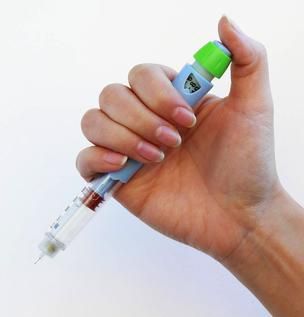Article
Insulin May Hold the Key for Acute Pancreatitis Treatment
Author(s):
Insulin, a peptide hormone, can protect the cells of the pancreas from acute pancreatitis – a disease for which there is currently no cure, according to a study by scientists from The University of Manchester.

Insulin, a peptide hormone, can protect the cells of the pancreas from acute pancreatitis — a disease for which there is currently no cure, according to a study by scientists from The University of Manchester.
Typically caused by bile acids from gall stones and ethanol metabolites from excessive alcohol consumption, acute pancreatitis refers to the pancreas “digesting itself,” resulting in sudden inflammation, vomiting, and severe abdominal pain. Treatment has been limited to providing intravenous fluids and proper nutritional care.
Researchers considered insulin an ideal candidate for the study, since they have seen favorable results using it to successfully treat obese pancreatitis patients. Insulin is used to reduce the fatty acids in the blood. Diabetes increases the severity of pancreatitis, heightening the risk of developing pancreatitis as well as multiple organ failure.
When alcohol and fat build within pancreatic acinar cells, metabolites increase cellular calcium, releasing the toxic enzymes that digest the pancreas and surrounding tissue. Recent study results published in the Journal of Biological Chemistry show that insulin prevents the toxic effects of alcohol and fatty acid metabolites.
Therefore, the study aimed to evaluate the protective effects of insulin on pancreatic acinar injury caused by pancreatitis-inducing agents, such as ethanol and fatty acid metabolites, including palmitoleic acid ethylesters (POEE) and palmitoleic acid.
“Insulin works by restoring the energy levels of pancreatic acinar cells, which fuels the calcium pumps on the membrane of these cells,” said Jason Bruce, MD, from the Faculty of Life Sciences at the University of Manchester in Britain. He continued, “These calcium pumps help to restore cellular calcium and prevent the catastrophic cell death and autodigestion of the pancreas.”
Bruce commented, “Although more research is needed to confirm that insulin works in animal models and human clinical trials, this study suggests that combined with tight control over blood glucose insulin may be an effective treatment for pancreatitis. Furthermore, if we can better understand how insulin works, then we might be able to design new and more effective drugs that might one day provide the first curative treatment for this disease.”
Nonetheless, what makes the Manchester research unique is it provides the first documented evidence that insulin directly protects pancreatic acinar cells, where the disease initiates, against pancreatitis-inducing agents.




